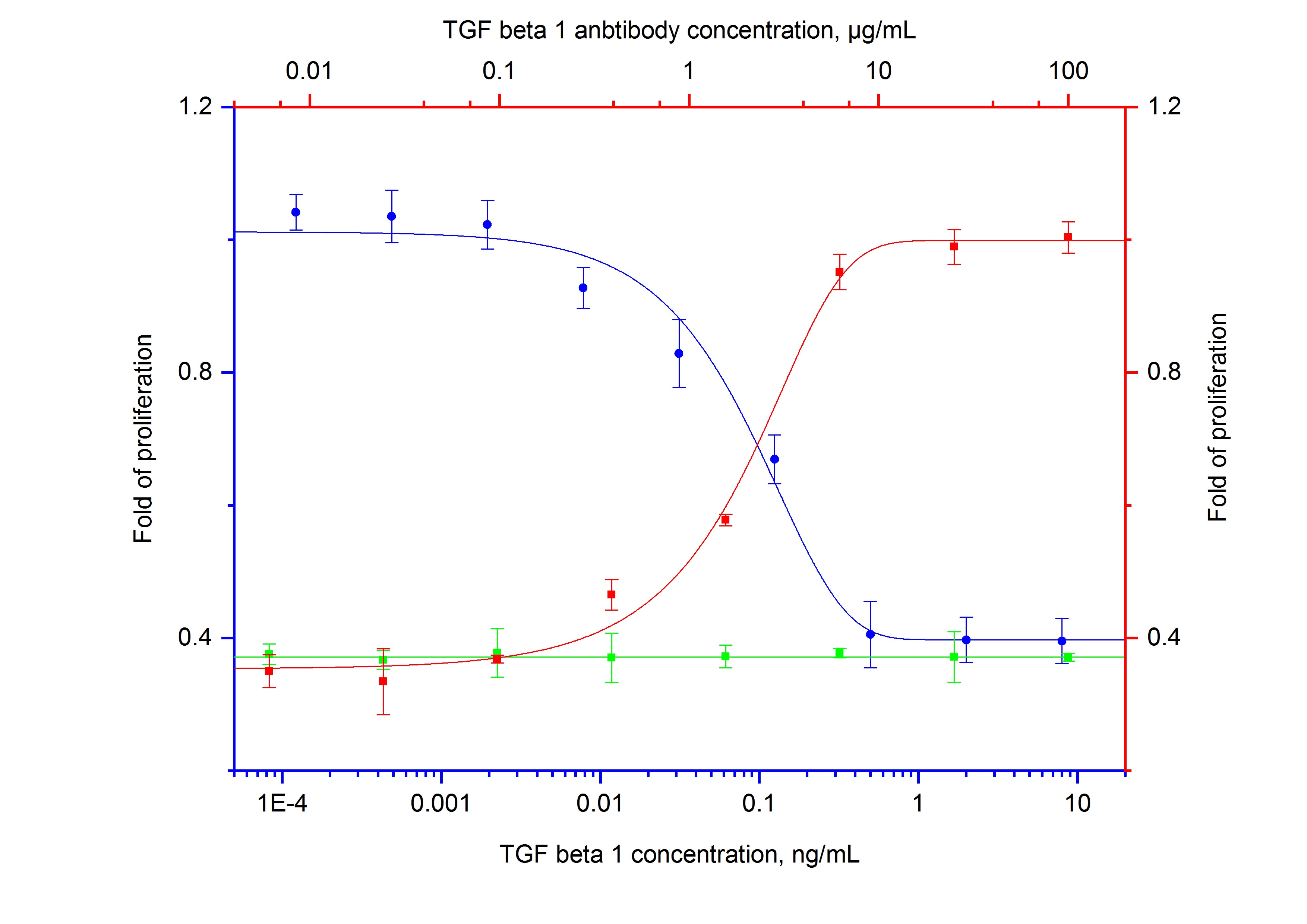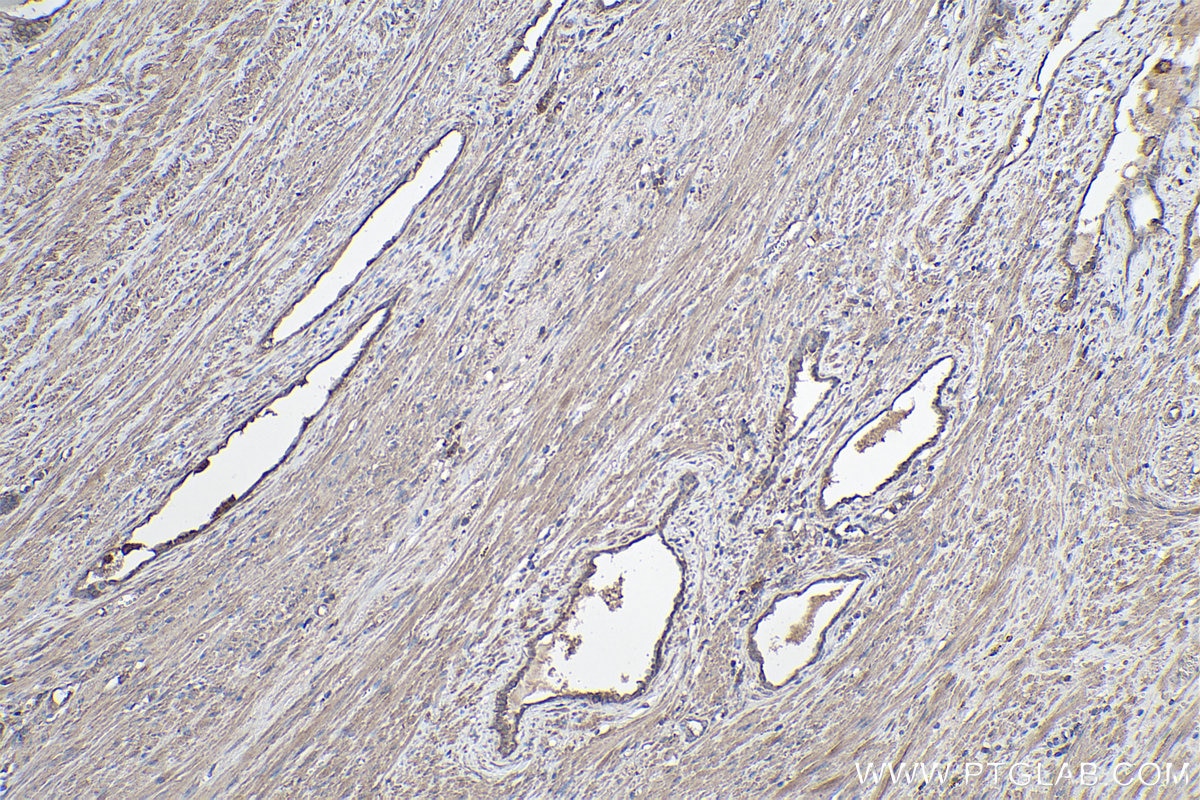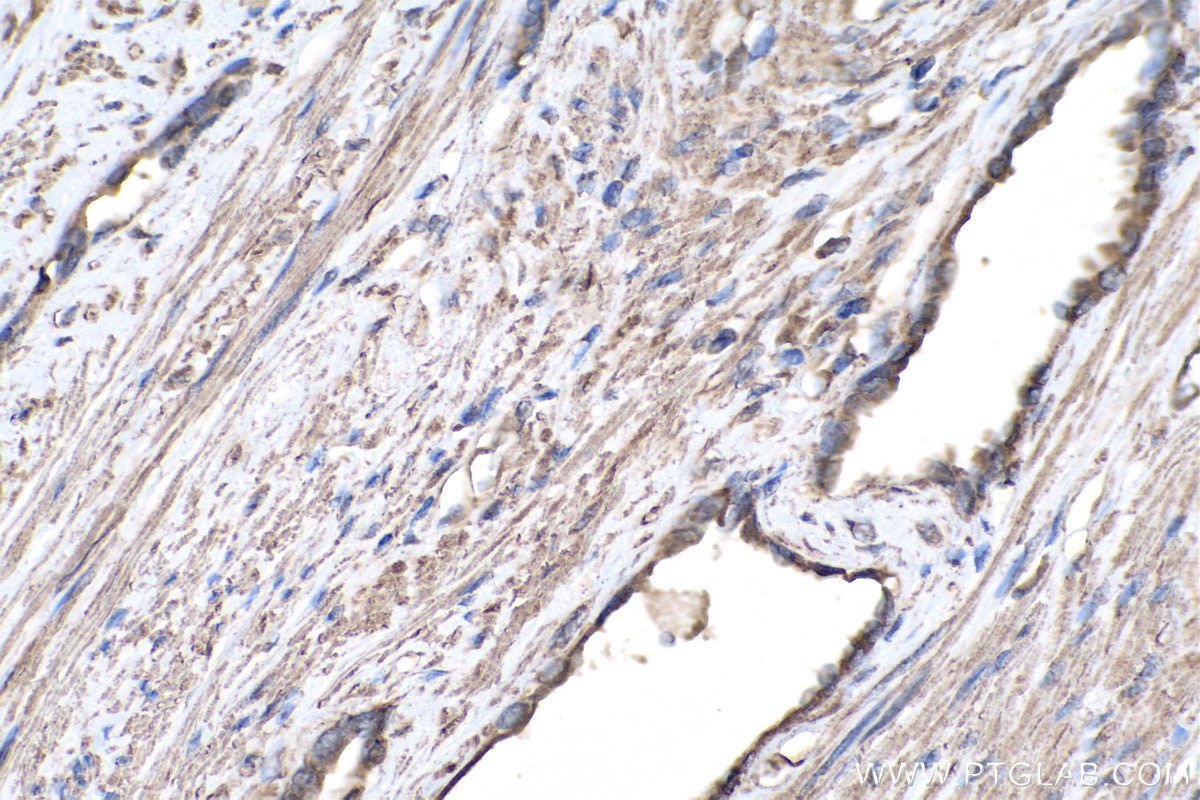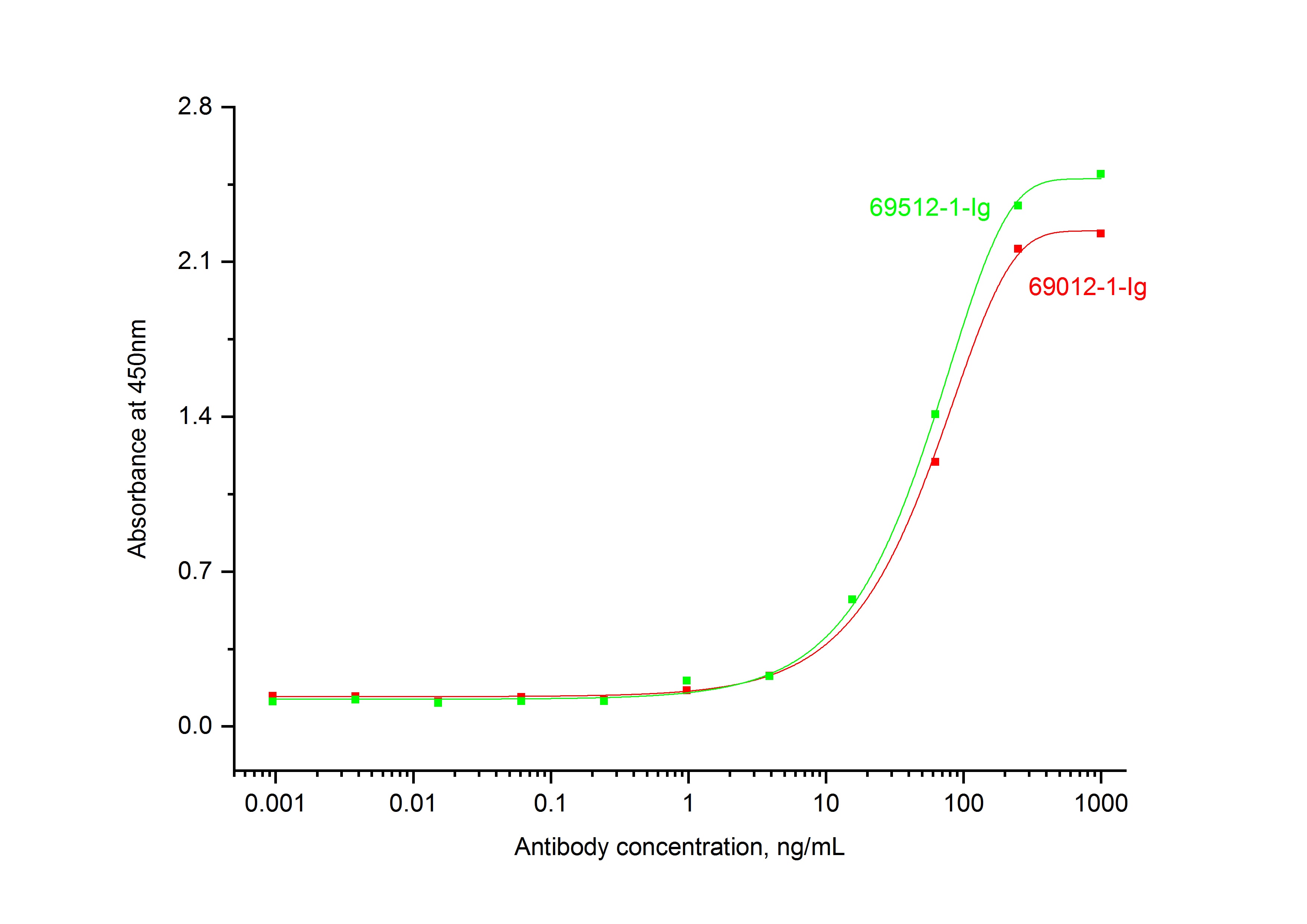Product Information
69012-1-Ig targets NeutraKine® TGF beta 1 in Neutralization, ELISA applications and shows reactivity with human samples.
| Tested Reactivity | human |
| Cited Reactivity | human, rat |
| Host / Isotype | Mouse / IgG1 |
| Class | Monoclonal |
| Type | Antibody |
| Immunogen |
Product name: HumanKine® recombinant human TGF beta 1 protein Source: -derived, Tag: Sequence: Predict reactive species |
| Full Name | transforming growth factor, beta 1 |
| Calculated Molecular Weight | 44 kDa |
| Gene Symbol | TGFB1 |
| Gene ID (NCBI) | 7040 |
| RRID | AB_2882930 |
| Conjugate | Unconjugated |
| Form | Lyophilized Powder |
| Purification Method | Protein G purification |
| UNIPROT ID | P01137 |
| Storage Buffer | Sterile PBS, pH 7.4. |
| Endotoxin | <0.1 EU/μg |
| Reconstitution | This product was lyophilized from a 0.2 μm filtered solution in PBS. Reconstitute at 1.0 mg/mL in sterile H2O before use. |
| Stability and Storage | Lyophilized antibodies are stable for 1 year from the date of receipt if stored between (-20°C) and (-80°C). Upon reconstitution we recommend that the solution can be stored at (4°C) for short term or at (-20°C) to (-80°C) for long term. Repeated freeze thaw cycles should be avoided with reconstituted products. |
Background Information
TGFB, also named as LAP and TGFB1, is a multifunctional peptide that controls proliferation, differentiation, and other functions in many cell types. TGFB acts synergistically with TGFA in inducing transformation. It also acts as a negative autocrine growth factor. Dysregulation of TGFB activation and signaling may result in apoptosis. Many cells synthesize TGFB and almost all of them have specific receptors for it. TGFB positively and negatively regulates many other growth factors. It plays an important role in bone remodeling as it is a potent stimulator of osteoblastic bone formation, causing chemotaxis, proliferation and differentiation in committed osteoblasts. It is highly expressed in bone. Mutation of TGFB are the cause of Camurati-Engelmann disease (CED) which known as progressive diaphyseal dysplasia 1 (DPD1).
This antibody can be used to neutralize the bioactivity of TGF beta 1.
Protocols
| Product Specific Protocols | |
|---|---|
| IHC protocol for NeutraKine® TGF beta 1 antibody 69012-1-Ig | Download protocol |
| Standard Protocols | |
|---|---|
| Click here to view our Standard Protocols |
Publications
| Species | Application | Title |
|---|---|---|
Bioengineered Emodin suppresses hepatocellular carcinoma growth by regulating macrophage polarization via microRNA-26a/transforming growth factor beta 1/protein kinase B. | ||
Cell Death Discov A positive feedback loop: RAD18-YAP-TGF-β between triple-negative breast cancer and macrophages regulates cancer stemness and progression. | ||
Biochem Pharmacol TGF-β1/IL-11 positive loop between renal tubular epithelial cell and fibroblast promotes the ectopic calcification of renal interstitial fibroblasts in rats | ||
J Nanobiotechnology NIR-II light based combinatorial management of hypertrophic scar by inducing autophagy in fibroblasts | ||
Nature Co-transplantation of autologous Treg cells in a cell therapy for Parkinson's disease | ||
ACS Appl Mater Interfaces Facile Nanocomposite Hydrogel Scaffold with Sustained Drug Release and Osteo-Immunomodulatory Effects to Enhance Bone Regeneration |










